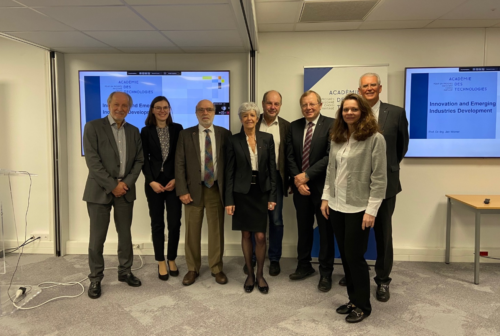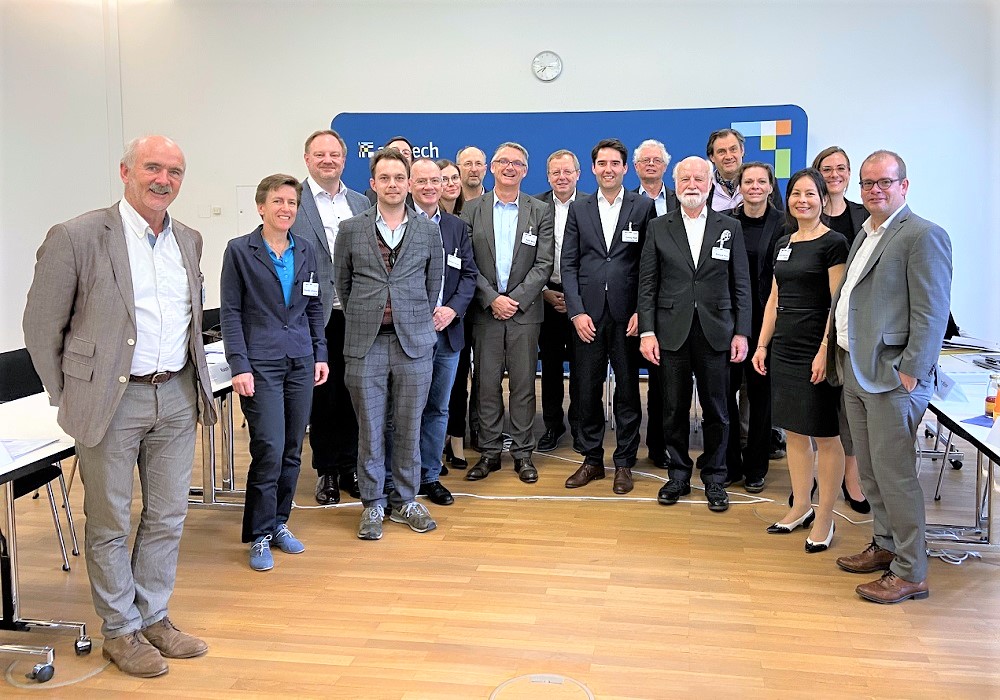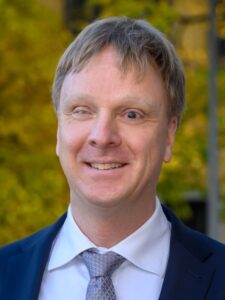International Cooperation

© Shutterstock/Liu zishan, acatech
acatech firmly believes that cross-border thinking and international cooperation are the decisive keys to deal with societal challenges, Germany’s future viability and competitiveness on an international scale.
As the voice for technical sciences both locally and globally, acatech maintains strategic partnerships with scientific and political institutions around the world, and is a member of both the European and the international association of technical science academies. acatech advises policymakers and the general society, provides guidance for policy issues regarding technologies, and coordinates the EU project SAPEA.
Impulskreis Europe/International
The “Impulskreis” under the leadership of President Jan Wörner serves the strategic consultation and further development of the European and international activities of acatech. The members of the circle, including acatech members, senators, and external experts, analyze and discuss current European and global developments, develop courses of action, and provide recommendations for the advancement of European and international activities, as well as the handling of international project inquiries, projects, and partnerships.
Events and Announcements
Impulskreis, September 10, 2024
Impulskreis, February 27, 2024, Munich
Impulskreis, September 6, 2023, Munich
Impulskreis, March 8, 2023, Berlin
Cooperation between academies of technology in Europe and worldwide
acatech is involved in both the European (Euro-CASE) and the global (CAETS) association of academies of technology on global issues.
Euro-CASE – European Council of Academies of Applied Sciences, Technologies, and Engineering
Euro-CASE represents the Academies of Engineering Sciences and was founded in 1992 in Paris. It is an independent non-profit organisation of national academies of engineering and technologies from 22 European countries. Through its Member academies, Euro-CASE has access to top European expertise from over 6,000 experts and engages stakeholders such as European Institutions, national Governments, companies and private organisations to enrich the debate on the benefits of technological progress, in a balanced and equitable manner. Euro-CASE also provides impartial, independent and balanced advice on technological issues with a clear European dimension, and along with other Academy networks Euro-CASE delivers evidence-based advice to policy makers and society. The aim of Euro-CASE is to foster European excellence in technology and engineering, sciences and practice, for the benefit of European Society.
Topics and Results
CAETS – International Council of Academies of Engineering and Technological Sciences
CAETS is the global association of 31 national academies of technology and science, of which acatech has been a member since 2005. Prof. Dr. Ulrich Wagner, acatech member, was elected to the Board of Directors of CAETS in October 2020 where he contributes to the strategic orientation of the association. With approx. 8,000 fellows, the organization forms a large interdisciplinary network of experts from science and industry.
Goals and Topics
Goals
- Development of solutions to address global societal challenges
- Formulation of evidence-based foundations for political decisions
- Promotion of technology acceptance in the general society
- Improving and modernizing engineering education and practice at the international level
Topics
- Energy and Climate
- Diversity and Inclusion
- Sustainable Development
Publications, Annual Convocations and CAETS Communication Prizes
Publications
- Position Papers and Statements
– CAETS Statement on Invasion of Ukraine
– CAETS Statement on COP26 - CAETS Reports
- Annual conferences
CAETS Communication Prizes
The CAETS Communication Award aims to promote science and technology communication and is awarded for technical success stories and innovations with high potential. Frank Behrend was a member of the review panel. The winner of the award was Jayanta Mukhopadhyay from the Indian Institute of Technology Kharagpur. Together with his team, he has developed a software solution for telemedicine application in India
More information on the 2023 CAETS communication prize entry requirements, assessment criteria and former winners can be found HERE.
Strategic Partnerships
acatech maintains numerous strategic partnerships with sister academies and other organizations worldwide. This international networking enables acatech to collaborate with the most innovative and creative partners, to tap into specific knowledge, and to exchange views on the global challenges that can only be met through international cooperation.
Advancing future tasks together
Numerous institutions around the world are working on similar sustainability plans and anticipating future challenges. Therefore, it makes sense to exchange, compare, question, and learn from each other. With the top industrial nations and the BRICS countries, partnerships have been established with academies of technology worldwide, as well as with other institutions such as foundations, chambers of commerce, embassies, think tanks, associations, and others.
Examples:
France
Since 201, the National Academy of Technologies of France and acatech have been engaged in a dialog on topics of common interest.
News:
- acatech – National Academy of Science and Engineering and NATF – National Academy of Technologies of France step up collaboration in the areas of energy and mobility
- National Academy of Technologies of France and acatech wish to further strengthen bilateral cooperation
- The future of infrastructure: innovation dialog at the French embassy

China
Since 2013, the Chinese Academy of Engineering and acatech have been engaged in a dialog on topics such as the development of digital infrastructures, urban industrial development and smart production, urban planning and mobility concepts, and smart city management services. Representatives from the science, industry and politics of both countries discussed these and other topics at the Sino-German Symposia, which have been held annually since 2013.
Korea
Cooperation with the Korean Academy of Science and Engineering has been intensified, especially since 2017. In 2019, scientists and industry representatives exchanged ideas on the topic of “Industrial AI in the Era of Digitalization” at RWTH Aachen University under the leadership of acatech member Prof. Dr. Thomas Gries. The academies intend to bring together their joint findings from 2017, 2018 and 2020 in a publication.
United Kingdom
Continuous scientific exchange between the UK and Germany is of great importance in the post-Brexit era. acatech works closely with the Royal Academy of Engineering (RAEng) on a bilateral level as well as in international umbrella organizations. In October 2020, for example, the two academies organized the virtual UK-Germany Energy Systems Symposium – “Accelerating net zero through policy-research collaboration” to give young scientists and young policymakers from both countries the opportunity to discuss the transformation of national energy systems.
Japan
The traditionally close bilateral relations between Germany and Japan are also reflected in the cooperation of acatech.
News:
Switzerland
acatech – National Academy of Science and Engineering and the Swiss Academy of Engineering Sciences (SATW) reaffirmed their intention to strengthen their cooperation in areas of strategic importance by signing a Memorandum of Understanding in Zurich on 23 November 2010.

acatech on Tuesday “Rail in the spotlight”
International Conferences and Events
Our international events offer the opportunity to exchange ideas on various technoscientific topics with worldwide partners, to build networks and to positively shape global challenges.
Events and Announcements
Dialogue on productivity between leading representatives of science and industry from Japan, Germany and the USA, Japan, Tokio, October 4 2023
German Japanese Business Leaders Forum on Productivity, Japan, Tokio, October 4.-5., 2023
Science and Technology in Society Forum, Japan, Kyoto, October 1.-3., 2023
CAETS Annual Conference 2023, Croatia, Zagreb, October, 2023
Euro-CASE Annual Conference 2023, Spain, Madrid, September, 2023
acatech NATF – Workshop (2): “Shaping the future of mobility and energy supply together, in a technology-open manner“, July 24, 2023, France, Paris
acatech NATF – Workshop (1): “Shaping the future of mobility and energy supply together, in a technology-open manner”, February 10, 2023, Germany, Munich
The Robot Revolution and Industrial IoT International Symposium 2022, Japan, 11-13 October 2022
Early Identification, Germany, Munich, October 5, 2022
CAETS Annual Conference 2022, France, Versailles, September 26-29, 2022
Euro-CASE Annual Conference 2022, Belgium, Brussels, September 19, 2022
Euro-CASE Annual Conference 2021, United Kingdom, 25-26 November 2021
Science and Technology in Society Forum, Japan, Kyoto, 2-5 October 2021
CAETS Annual Conference 2021, Argentina, Buenos Aires, 20-24 September 2021
Euro-CASE Annual Conference 2020, Zagreb, Croatia, November 20, 2020
Honda Price 2020, November 17, 2020, Japan
SMATEC 2020, Seoul, Korea, November 17, 2020
UK-DE Energy Systems Symposium, virtual event, October 19-23, 2020
CAETS Annual Conference 2020, Seoul, Korea, October 12-15, 2020


